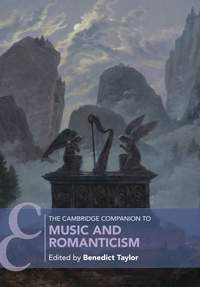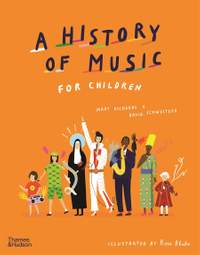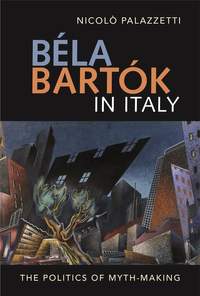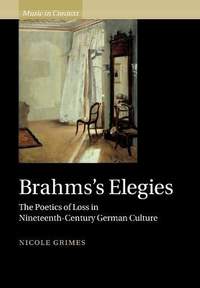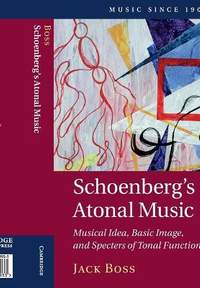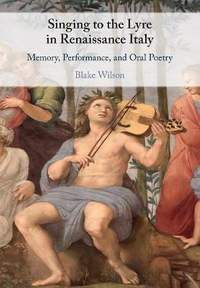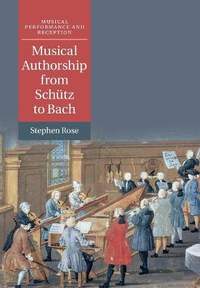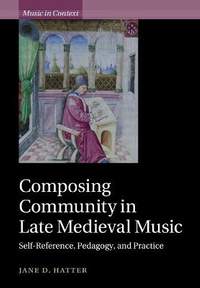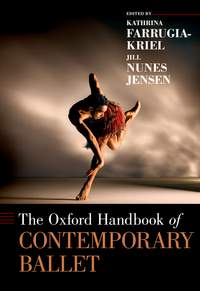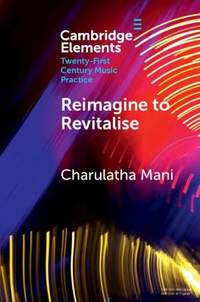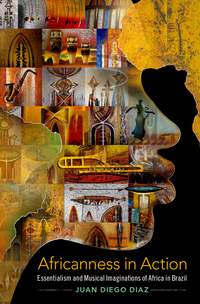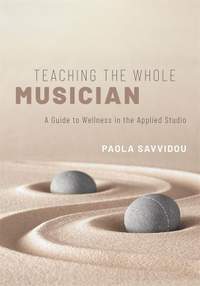New Publications,
New Music Book Publications - 30th August 2021
 Welcome to our latest selection of new music books. Our picks this time round include an analysis of Charles Ives's Concord Sonata; a collection of essays exploring the relationship between music and romanticism; a history of music for children; an examination of the reception of the music of Bartók in fascist Italy; new paperback editions of books on Brahms, Schoenberg, singing in Renaissance Italy, and self-referential elements in late medieval music; a handbook of contemporary ballet; and a discussion of African music in Brazil.
Welcome to our latest selection of new music books. Our picks this time round include an analysis of Charles Ives's Concord Sonata; a collection of essays exploring the relationship between music and romanticism; a history of music for children; an examination of the reception of the music of Bartók in fascist Italy; new paperback editions of books on Brahms, Schoenberg, singing in Renaissance Italy, and self-referential elements in late medieval music; a handbook of contemporary ballet; and a discussion of African music in Brazil.
In 1921, insurance executive Charles Ives sent out copies of a piano sonata to two hundred strangers. Laden with dissonant chords, complex rhythm, and a seemingly chaotic structure, the so-called Concord Sonata confounded the recipients, as did the accompanying book, Essays before a Sonata. Diffracting the twinned works into their essential aspects, this book lays out the historical context that produced Ives's masterpiece and illuminates the arguments Ives himself explored in the essays.
Available Format: Book
The Cambridge Companion to Music and Romanticism
Benedict Taylor (editor); Cambridge University Press; Paperback
This companion presents a new understanding of the relationship between music and culture in and around the nineteenth century. Challenging the view that musical romanticism is confined to a particular style or period, it reveals the multiple intersections between the phenomenon of romanticism and music, and draws on a variety of disciplinary approaches to place music at the heart of a nexus of themes and concerns.
Available Format: Book
Why do we make music? Which instruments make up an orchestra? How does music affect our emotions? These are just some of the fascinating questions addressed in this book, which takes children on a musical journey around the world. Readers will meet along the way a diverse cast of composers, musicians and performers who all make music in a variety of different genres, from Bach to Billie Eilish, Mozart to Miriam Makeba.
Available Format: Book
This book examines the reputation of the Hungarian composer Béla Bartók as an antifascist hero and beacon of freedom. Following Bartók's reception in Italy from the early twentieth century, through Mussolini's fascist regime, and into the early Cold War, it explores the connections between music, politics and diplomacy. The wider context of this study also offers glimpses into broader themes such as fascist cultural policies, cultural resistance, and the ambivalent political usage of modernist music.
Available Format: Book
Brahms's Elegies: The Poetics of Loss in Nineteenth-Century German Culture
Nicole Grimes; Cambridge University Press; Paperback
This book provides a compellingly fresh perspective on a series of Brahms's elegiac works, bringing together the disciplines of historical musicology, German studies, and cultural history. Exploring the expressive potential of Schicksalslied, Nänie, Gesang der Parzen, and the Vier ernste Gesänge, it reveals the philosophical weight of this music and illuminates our understanding of the place of Brahms in the fabric of modernist culture.
Available Format: Book
Schoenberg's Atonal Music: Musical Idea, Basic Image, and Specters of Tonal Function
Jack Boss; Cambridge University Press; Paperback
This book shows how Schoenberg's atonal music can be understood in terms of successions of pitch and rhythmic motives and pitch-class sets that flesh out the frameworks of 'musical idea' and 'basic image'. Analyses of works such as Pierrot lunaire and Erwartung are illustrated by richly detailed musical examples, revealing the underlying logic of some of Schoenberg's most difficult pieces of music.
Available Format: Book
Singing to the Lyre in Renaissance Italy: Memory, Performance, and Oral Poetry
Blake Wilson; Cambridge University Press; Paperback
A primary mode for the creation and dissemination of poetry in Renaissance Italy was the oral practice of singing and improvising verse to the accompaniment of a stringed instrument. This book is the first comprehensive study of this ubiquitous practice, which was cultivated by performers ranging from popes, princes, and many artists, to professionals of both mercantile and humanist background.
Available Format: Book
What did the term 'author' denote for Lutheran musicians in the generations between Heinrich Schütz and Johann Sebastian Bach? This book examines attitudes to authorship as revealed in the production, performance and reception of music in seventeenth-century German lands. Analysing a wide array of archival, musical, philosophical and theological texts, it illuminates notions of creativity in the period and the ways in which individuality was projected and detected in printed and manuscript music.
Available Format: Book
Composing Community in Late Medieval Music: Self-Reference, Pedagogy, and Practice
Jane D. Hatter; Cambridge University Press; Paperback
When we sing lines in which a fifteenth-century musician uses ethereal polyphony to complain mundanely about money or hoarseness, more than half a millennium melts away. These familiar worries and surprising jests break down temporal distances, humanising the lives and endeavours of our musical forebears. Examining connections between self-referential repertoire from the years 1450-1530 and similar self-referential creations for painters' guilds, this book reveals musicians' agency in forming the first communities of early modern composers.
Available Format: Book
The Oxford Handbook of Contemporary Ballet
Kathrina Farrugia-Kriel & Jill Nunes Jensen (editors); Oxford University Press; Hardback
This handbook prioritises connections between ballet communities, looking at the many ways ballet functions as a global practice in the twenty-first century and providing new perspectives on ballet's past, present, and future. Many of the chapters consider whether or not ballet can reconcile its past and actually become present, while others see ballet as flexible and willing to be remolded at the hands of those with tools to do so.
Available Format: Book
Reimagine to Revitalise: New Approaches to Performance Practices Across Cultures
Charulatha Mani; Cambridge University Press; Paperback
How can the classical Karnatik music of South India illuminate understanding of the art music of seventeenth-century Italy, and specifically Monteverdi's operas? Both art forms attach great value to the skill of vocal ornamentation, and by exploring the singer's practice moving between them, this book reveals how intercultural approaches can enable the reconsideration of the history of Western music from a global perspective.
Available Format: Book
Africanness in Action: Essentialism and Musical Imaginations of Africa in Brazil
Juan Diego Diaz; Oxford University Press; Paperback
When many people think of African music, the first ideas that come to mind are often of rhythm, drums, and dancing. These perceptions are rooted in emblematic African and African-derived genres such as West African drumming, funk, salsa, or samba. This book explores African music through the perspectives of Black musicians in Bahia, Brazil, a site imagined by many as a diasporic epicentre of African survivals and purity.
Available Format: Book
Teaching the Whole Musician: A Guide to Wellness in the Applied Studio
Paola Savvidou; Oxford University Press; Paperback
This book empowers applied music instructors to support their students' wellness through conversation tools, hands-on activities for injury prevention, mental health protection, and recovery support. Music teachers will learn how to help students develop skills and learn behaviours that will expand their self-awareness as they work towards a career in the arts.
Available Format: Book



